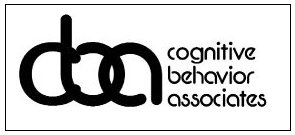Couples Theraphy
Even though modern life has evolved in countless ways, one thing remains the same. At the heart of the human experience is having relationships, especially romantic ones. The bond between romantic partners can be the foundation of adult and family life. Regardless of gender or sexual orientation, how we relate to our partner sets the tone for much of our happiness.
Yet, we do not receive much, if any, training on how to be in a relationship. We go to grade school and college to learn subjects. We receive on the job training. But when it comes to how we communicate and relate to our significant other, we are not taught how to be a good partner or what it takes to maintain a healthy partnership. People assume that being in a relationships is intuitive. But it is not. It is a set of skills. And we all can learn those skills and get better at them throughout our lifetime.
At Cognitive Behavior Associates (CBA), our therapists understand the importance of relationships. They know how to identify and address a wide range of dynamics that occur within a partnership. While there are many different strategies available to couples when looking for therapy, at CBA, the focus is on utilizing a cognitive behavior therapy (CBT) framework. CBT for couples therapy is very effective for almost any age range and relationship issue. CBT focuses on identifying the strengths and weaknesses in the relationship, then utilizing a couple’s strengths as the foundation. They work through problem situations, thoughts or feelings in order to create positive change. CBA integrates two well-regarded and evidence-based approaches into its CBT for couples therapy— IBCT and the Gottman Method.
Created in the late 1990s, Integrative Behavioral Couple Therapy (IBCT) expands on traditional methods for behavior couples therapy. IBCT focuses on one or two main themes in a couple’s relationship. For example, the theme could be about how dependent they are on each other. Or it could be about their communication style. There are numerous different types of possible themes. The themes are viewed through the lens of how the couples interact with each other.
The interactions have three factors. 1) What each person brings to the relationship. 2) A “contingency shaped processes” that is best for changing triggering events and the reactions people have to those events. 3) Examining the pattern of interaction between the individuals. Acceptance ultimately is the foundation of IBCT. With more acceptance, resistance among the partners decreases. It then becomes easier to adapt and grow together. The acceptance piece is a primary difference between IBCT and traditional therapies.
Another type of CBT for couples therapy is the Gottman Method (“Gottman”). In use for over three decades, Gottman is a structured and goal-oriented model. It increases respect, boosts affection, and creates more understanding. It also works to maintain calm discussions, increase closeness, and move through conflicts when talks are at a stalemate. By identifying what is not working and providing a framework on how to improve matters, Gottman can save relationships.
There are two essential elements of Gottman: trust and commitment. Trust is about looking out for a partner’s interest and not just our own. Commitment is about believing the partnership is a lifelong journey. The method has seven core components:
-
- Building love maps
- Knowing a partner’s inner psyche, hopes, dreams, worries, etc.
- Sharing admiration and fondness
- Affection and respect
- Turning towards connection
- Stating one’s needs
- Having a positive perspective
- A positive approach for solving problems
- Managing conflict
- How to “fight” in a healthy way
- Making life dreams come true
- A safe place to talk about dreams and hopes
- Creating shared meaning
- A sense of purpose and growing together
- Building love maps
Whether a couple is using IBCT or Gottman, therapy can be the difference between spending a life together in harmony or constant conflict. We here at CBA integrate these two well-regarded modalities into our CBT therapy for couples. We know the nuances of communication styles and interactions that make up a healthy relationship. When things get hard, it’s no wonder we feel angry, lost, or hurt. But that is exactly where therapy can help.
By working with a professional therapist at CBA, clients can discover their relationship problems and learn how to improve them. They can forge tighter bonds with each other and find happiness in their partnership again. When this happens, everyone benefits. People become happier. Children see healthy role models in their parents. The family unit strengthens. Life in almost every aspect improves. Also, CBT therapy for couples can set an important foundation. As life hits bumps, as it always will, couples will be better equipped to deal with challenges. This strength is long-term. It provides the framework for a healthy, happy life for decades. The more work we put in now, with the right guidance, the better our lives become in the present and the future.
Click here for more info on the American Association for Marriage and Family Therapy's website.

